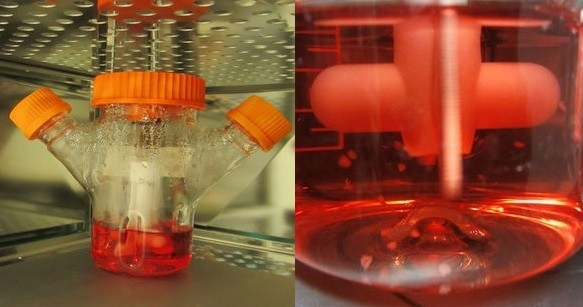Frankenstein Lives? Human Brains Grown in Laboratory 'Can go on Indefinitely'

Human brains have been grown successfully in a laboratory for the first time and have the potential to live forever.
The miniature brains were grown in a 3D culture system developed by researchers in Austria. They grew stem cells into cerebral organoids, or "mini brains", which consist of several brain regions.
How the human brain develops has always remained a mystery to scientists. It goes from a simple tissue into one of the most complex natural structures known to man.
Studies of brain disorders are difficult because there is no 3D culture model of the developing brain.
Rather than using traditional methods to achieve growth, the researchers, led by Dr Jürgen Knoblich at the Molecular Biotechnology of the Austrian Academy of Sciences, fine-tuned conditions to encourage cells to grow into different brain tissues.
Scientists used established human embryonic stem cells and pluripotent stem cells (iPS), which can differentiate into specialised cells in the body. They then identified growth conditions that helped the stem cells turn into brain tissues.

Knoblich said: "Within three to four weeks defined brain regions were formed."
After 30 days, defined brain regions, including a cerebral cortex and retina, had developed. After two months, the brains had reached their maximum size - about that of a pea.
They could then survive indefinitely in the spinning bioreactor, scientists said, but further growth could not be achieved because of a lack of a circulation system.
Researchers believe their mini brains can be used to model pathways to neurological diseases such as microcephaly, a genetic disorder where the brain size is significantly reduced. By generating iPS cells from the tissue of a microcephaly patient, the team was able to grow mini brains with the disorder.
The microcephaly mini brains grew smaller than their non-affected counterparts, the researchers found.
"In addition to the potential for new insights into the development of human brain disorders, mini brains will also be of great interest to the pharmaceutical and chemical industry," said first author Madeline A Lancaster.
"They allow for the testing of therapies against brain defects and other neuronal disorders. Furthermore, they will enable the analysis of the effects that specific chemicals have on brain development."
© Copyright IBTimes 2025. All rights reserved.






















